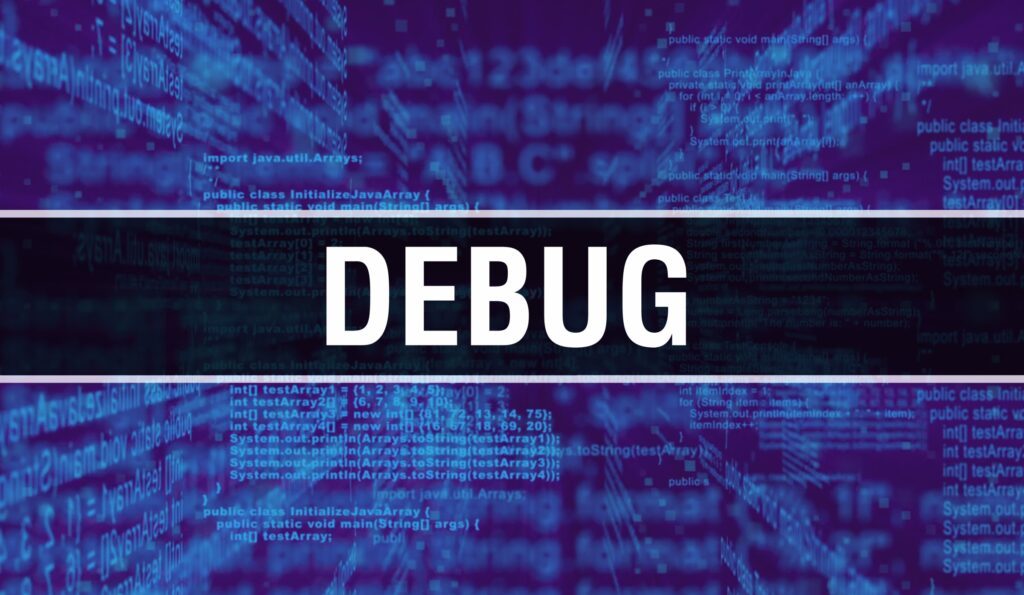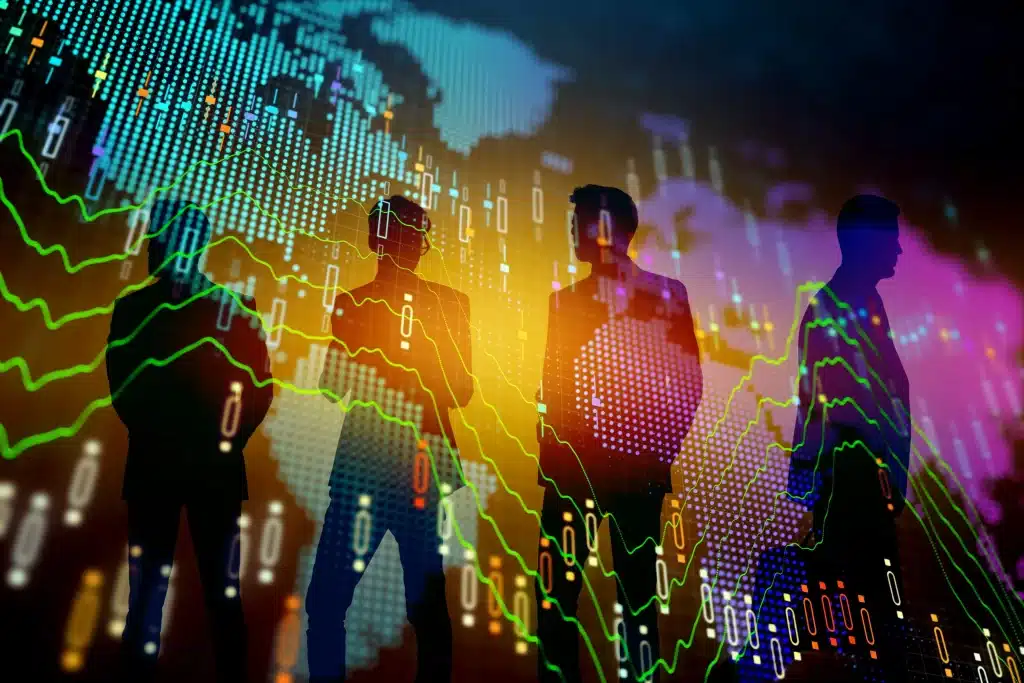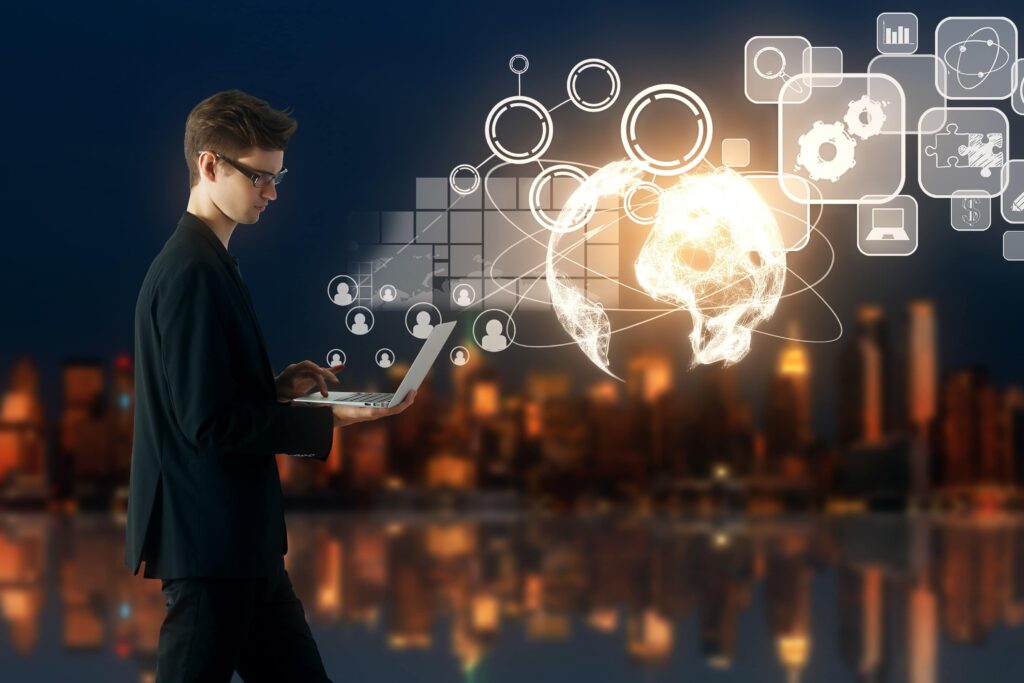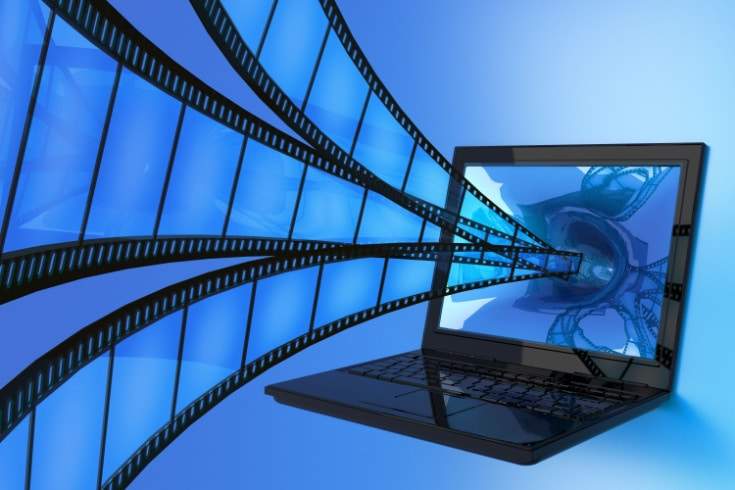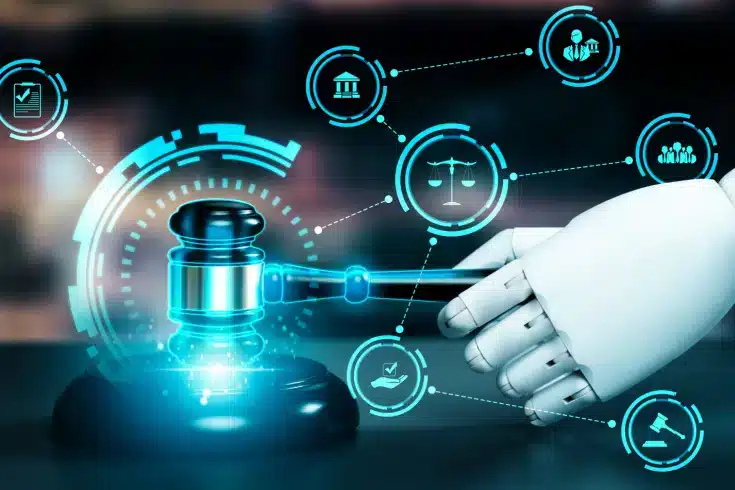Ministry of Justice Releases Guidelines on the Relationship between AI Contract-Related Support Services and Article 72 of the Japanese Attorney Act
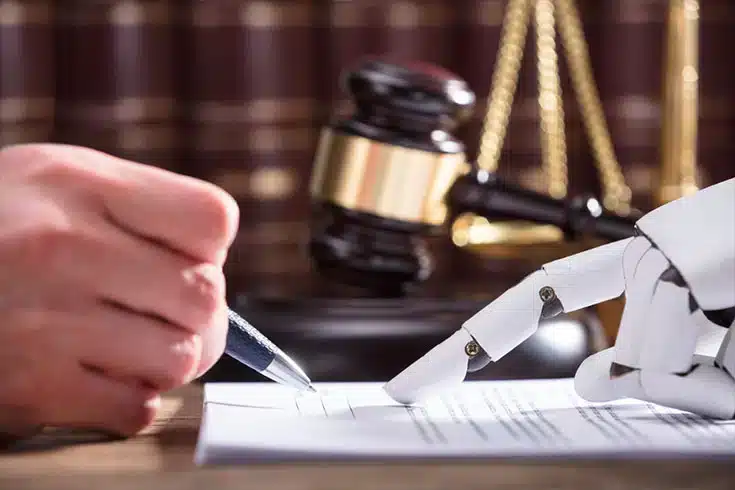
The rapid development of generative AI technologies, spearheaded by OpenAI’s “ChatGPT,” has led to the provision of various services utilizing AI. In recent years, services that support contract-related tasks using AI have been offered, and there has been debate as to whether these services might infringe upon Article 72 of the Japanese Attorney Act (弁護士法).
In August 2023, the Minister’s Secretariat of the Justice System of the Ministry of Justice published guidelines titled “On the Provision of Contract-Related Business Support Services Using AI and Their Relationship with Article 72 of the Japanese Attorney Act (AI等を用いた契約書等関連業務支援サービスの提供と弁護士法第72条との関係について).” These guidelines outline the approach to the relationship between the provision of services that automate parts of the creation, review, and management of contracts using AI and Article 72 of the Japanese Attorney Act.
Here, we will provide a detailed explanation of the contents of these guidelines.
Is AI-Assisted Contract Management a Violation of the Attorney Act?
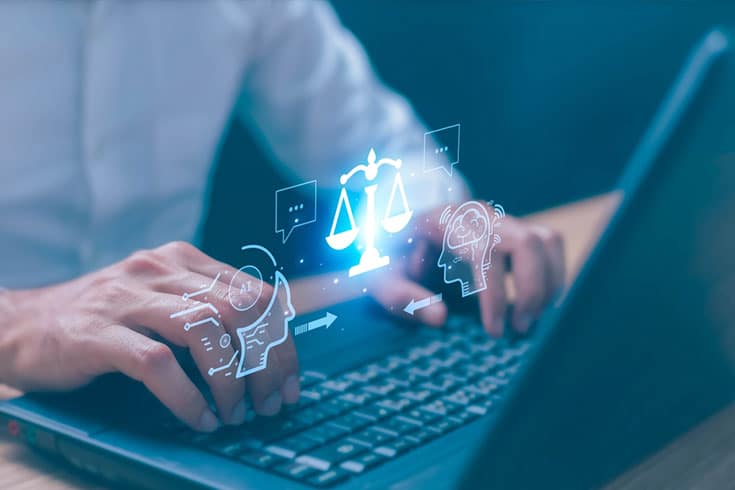
“AI and related contract management support services” refer to services that support the creation, review, and management of contracts by partially automating these tasks using AI. Specifically, in contract creation, AI can provide contract templates, which can then be used to draft contracts. For contract review, AI can analyze the content of contracts to determine whether they comply with laws and internal company regulations. Furthermore, in contract management, AI can assist with the storage, organization, and searching of contracts. These services are expected to contribute to the efficiency and quality improvement of contract-related operations.
Utilizing IT technology in legal-related operations and procedures to aim for efficiency and cost reduction is also known as “Legal Tech.” Starting with IT technology for electronic contracts, the introduction of automation technologies such as AI can enhance and improve the operations of companies and law firms. Legal Tech includes electronic contract services, document management services, contract review services, application filing services, dispute and litigation services, search services, and services for law firms.
When it comes to Legal Tech using AI, depending on the service, there is a concern whether it constitutes “unauthorized practice of law,” which would be in conflict with Article 72 of the Attorney Act. This guideline was established considering the balance between enhancing the international competitiveness through the improvement of corporate legal functions and the usefulness in contract review and knowledge management.
What Constitutes “Unauthorized Practice of Law” Prohibited by the Attorney Act
Article 72 of the Japanese Attorney Act (弁護士法) prohibits the handling of legal affairs by non-attorneys as follows:
(Prohibition of Legal Affairs Handled by Non-Attorneys)
Article 72: Persons who are not attorneys or law firms may not engage in the business of handling legal affairs such as appraisal, representation, arbitration, or settlement in legal matters including litigation, non-contentious cases, and administrative appeals such as requests for review, re-examination, or re-assessment, with the purpose of receiving compensation. However, this does not apply in cases where there are special provisions in this Act or other laws.
e-Gov Legal Search | Attorney Act[ja]
Here, the following acts are prohibited for individuals who are neither attorneys nor law firms:
- With the purpose of receiving compensation,
- In relation to legal matters,
- Handling legal affairs or acting as an intermediary.
The determination of whether an act falls under the so-called “unauthorized practice of law” prohibited here is based on the specific facts of each case and should be judged in light of the purpose of the same article (Supreme Court Grand Bench decision on July 14, 1971 (Showa 46), Keishu Vol. 25, No. 5, p. 690). The interpretation and application of this article are ultimately entrusted to the discretion of the courts.
Related article: Where does unauthorized practice of law begin? Explaining legal acts that non-attorneys cannot perform[ja]
Guidelines Announced by the Ministry of Justice
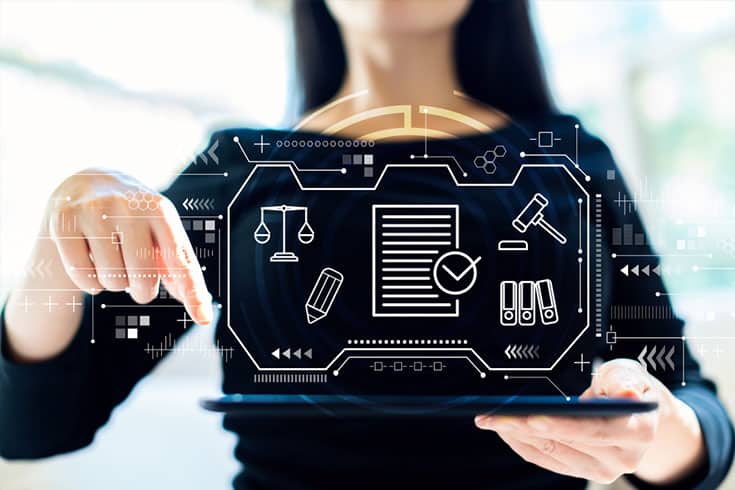
The guidelines titled “On the Provision of Contract-Related Business Support Services Using AI, etc., and Their Relationship with Article 72 of the Attorney Act” announced by the Ministry of Justice outline the ministry’s views on the relationship between the provision of services that support the creation, review, and management of contracts through partial automation using AI, etc., and Article 72 of the Attorney Act.
Below, we will explain the criteria for acts that would constitute “unauthorized practice of law,” which would violate Article 72 of the Attorney Act.
Is the Purpose to Obtain Remuneration?
For instance, if a business provides services without receiving any profit, it would not violate the said article. However, if there is a substantial quid pro quo relationship between the provision of services and the receipt of monetary payment or other benefits, it is considered that the purpose is to obtain remuneration. This includes cases such as:
- When the business leads to a contract for another paid service it provides;
- When the business leads to a contract for a paid service provided by a third party and the third party pays money or other benefits to the business;
- When the service is provided only to those who have paid a fee, subscription fee, membership fee, or other charges, regardless of the name, to obtain the right to use the service.
Does the Case Involve Legal Matters?
The listed “litigation cases, non-contentious cases, and administrative appeal cases such as requests for review, re-examination, and re-review” are considered legal matters. Cases that have a dispute or doubt regarding legal rights and obligations to a degree comparable to these are also considered “other general legal matters.”
In practice, whether a case has legal significance is determined on a case-by-case basis, taking into account the purpose of the contract, the relationship between the parties, and the background circumstances.
Do the Service’s Functions and Displays Constitute Legal Work?
“Legal work” refers to the handling of matters that produce or alter legal effects, in addition to the “appraisal, representation, arbitration, or settlement” listed here. Whether the content of a service constitutes “legal work” is determined by the service’s functions and the content displayed. Contract-related business support services can be broadly classified into three categories: “Contract Drafting Support Services,” “Contract Review Support Services,” and “Contract Management Support Services.”
For example, in drafting support services, if a specific contract is displayed based on the user’s input, it may constitute legal work. On the other hand, if the service merely selects a template from pre-registered contracts based on the user’s input and displays it with the user’s input reflected, it is not considered legal work.
Similarly, in review support services, if the service displays the presence or absence of legal risks or specific amendment proposals for the contract under review, based on the individual case, it may constitute legal work. However, if it only displays differences from pre-registered templates, regardless of the wording, it is not considered legal work.
Is There Review and Amendment by an Attorney?
Even if the service deals with “legal work” related to “legal matters” for the “purpose of obtaining remuneration,” it does not violate the Attorney Act if an attorney reviews and, if necessary, amends the relevant contract.
Summary: Driving Business with the Synergy of AI-based Legal Tech and Attorneys
With the recent advancements in generative AI technology, the provision of services supporting related tasks such as contract drafting has become more accessible, and their demand is expected to rise. The guidelines issued by the Japanese Ministry of Justice, titled “Guidelines on the Provision of Contract-Related Services Using AI and the Relationship with Article 72 of the Attorney Act,” serve as a reference for legal tech service providers to comply with Article 72 of the Japanese Attorney Act.
Going forward, legal services utilizing AI are anticipated to enhance efficiency and improve the quality of contract-related tasks. However, as has been highlighted with ChatGPT, AI-generated responses are not always correct. It can be challenging for users to recognize mistakes or issues in the answers provided by AI.
In business, it is not uncommon to become entangled in unexpected disputes. While seeking efficiency through the use of AI, the intervention of attorneys is essential for making appropriate judgments and responses on a case-by-case basis. As clearly indicated in the guidelines, the safest way to use such services is for attorneys to review and, if necessary, amend the output, ensuring the highest level of reliability.
Guidance on Measures by Our Firm
The AI business is fraught with numerous legal risks, and the support of attorneys well-versed in AI-related legal issues is essential. Our firm provides sophisticated legal support for AI businesses, including those involving ChatGPT, through a team of lawyers and engineers. Our services include contract drafting, legality reviews of business models, protection of intellectual property rights, and privacy compliance. Please refer to the article below for more details.
Practice Areas of Monolith Law Office: AI (including ChatGPT) Legal Affairs[ja]
Category: IT

